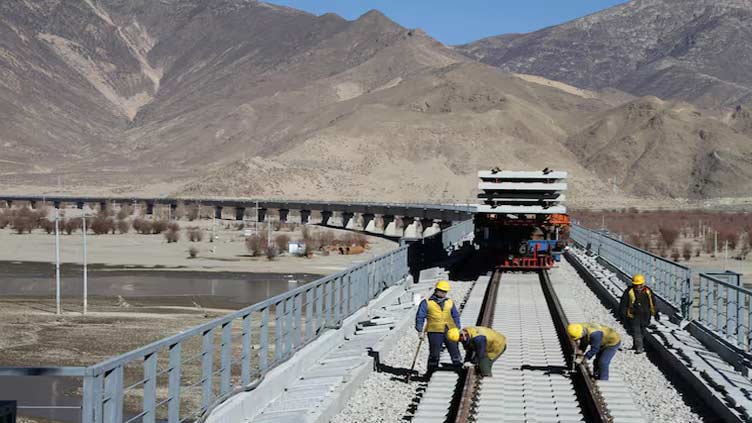India says it conveyed concerns to China over hydropower dam in Tibet

World
China says that project in Tibet will not have a major impact on the environment
NEW DELHI (Reuters) - India's foreign ministry said on Friday that New Delhi has conveyed its concerns to Beijing about China's plan to build a hydropower dam in Tibet on the Yarlung Zangbo river which flows into India.
Chinese officials say that hydropower projects in Tibet will not have a major impact on the environment or on downstream water supplies but India and Bangladesh have nevertheless raised concerns about the dam.
The Yarlung Zangbo becomes the Brahmaputra river as it leaves Tibet and flows south into India's Arunachal Pradesh and Assam states and finally into Bangladesh.
"The Chinese side has been urged to ensure that the interests of downstream states of the Brahmaputra are not harmed by activities in upstream areas," Indian foreign ministry spokesperson Randhir Jaiswal told a weekly media briefing.
"We will continue to monitor and take necessary measures to protect our interests," he said.
The construction of the dam, which will be the largest of its kind in the world with an estimated capacity of 300 billion kilowatt-hours of electricity annually, was approved last month.
Jaiswal said that New Delhi had also lodged a "solemn protest" with Beijing against its creation of two new counties - one of which includes a disputed area also claimed by India - last month.
"Creation of new counties will neither have a bearing on India's longstanding and consistent position regarding our sovereignty over the area nor lend legitimacy to China's illegal and forcible occupation of the same," he said.
Relations between Asian giants India and China, that were strained after a deadly military clash on their disputed border in 2020, have been on the mend since they reached an agreement in October to pull back troops from their last two stand-off points in the western Himalayas.
The two armies have stepped back following the agreement and senior officials held formal talks for the first time in five years last month where they agreed to take small steps to improve relations.


